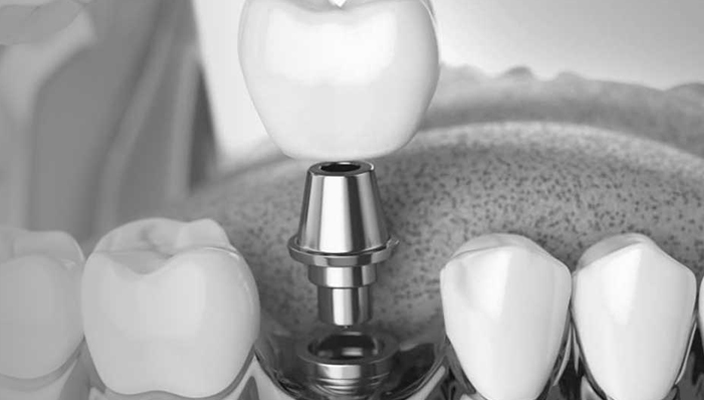
70 Great Russell St, Holborn, London WC1B 3BN
- [email protected]

70 Great Russell St, Holborn, London WC1B 3BN


The length of your recovery time after implant surgery will vary depending on the specificities of your case, the number of dental implants placed, and how well you handle your aftercare.
Most implant surgeries require a local anaesthetic, and in some situations the patient is also given a sedative. After surgery, most patients experience minor swelling and some discomfort, as well as possible bruising for a few days. However, if bone grafting has also been carried out, there will be significant swelling and a little more discomfort. Your consultant dentist will advise you on pain medication and how to keep comfortable after your surgery.


Alternately, if just a single dental implant is placed, the patient is likely to experience only minor discomfort or swelling afterwards. Patients can carry out daily activities as usual without much disruption.
Caring for your teeth implant(s) after surgery doesn’t require much effort. Be sure to brush the affected area gently to keep plaque and bacteria at bay. Avoid crunchy and chewy food, and stick to a soft diet for about seven to ten days. Some patients, however, may need to carry on eating soft foods for about six weeks. Your dentist will talk to you about the best aftercare regime for you to follow, as well as what medication can help you stay comfortable.
It’s important to live a healthy lifestyle during your recovery period. Smoking can increase recovery time and harm your progress. For this reason, it’s best to avoiding smoking for a week or two after surgery, or to cut down as much as you can. Likewise, too much alcohol and a poor diet can be detrimental to your healing.
Without regular brushing and flossing, plaque and bacteria are prone to building up around the gums. The success of your implant(s) depends on a good dental care routine. Talk to your dental consultant about how to take care of your implant(s).


After your initial healing, the implant(s) will continue to fuse with the jawbone. It usually takes around three months until the crowns or bridges can be placed. How long it exactly takes depends on your individual case, the quality of your bone, and whether you’ve had any bone grafted.
It’s also important to attend regular appointments with your dentist to ensure the success of your dental implant(s). Your dentist will continue to give you advice on how to care for your implant(s) at your appointments.